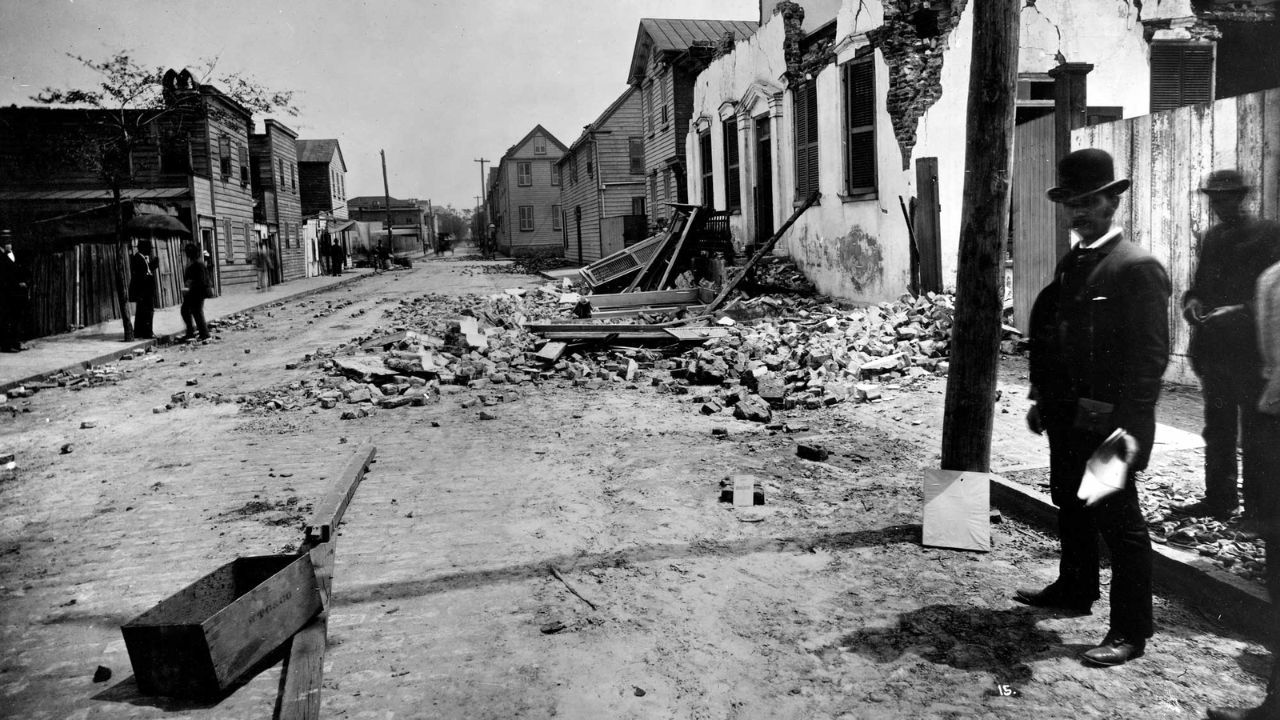Florida is not known for its seismic activity, but that does not mean it is immune to earthquakes. In fact, the state has experienced several tremors in its history, some of which caused significant damage and disruption. The most recent one occurred on February 8, 2024, when a 4.0 magnitude earthquake was reported off the east coast of Florida, rattling many along the Space Coast. However, this was not the biggest earthquake ever recorded in Florida. That title belongs to an event that happened nearly 150 years ago, and that shut down the state for a day.
The 1879 Earthquake
According to the University of Florida, geologists agree that the largest earthquake ever recorded in Florida happened on January 12, 1879, shortly before midnight. The earthquake weighed in at a magnitude of 4.4, and was possibly centered in Putnam County, near Palatka. The earthquake was felt in a large part of north Florida, including Cedar Key, Gainesville, Jacksonville, St. Augustine and Tallahassee. Residents reported two back-to-back tremors that lasted about 30 seconds each, and that sent crockery tumbling off shelves and jolted people awake.
The earthquake caused widespread panic and confusion among the population, who were not accustomed to such phenomena. Some people thought it was a sign of the end of the world, while others blamed it on volcanic eruptions or explosions. The earthquake also disrupted telegraph and railroad services, cutting off communication and transportation across the state. The governor of Florida at the time, George Franklin Drew, declared January 13, 1879, a public holiday, and urged people to stay home and pray for safety. The earthquake was also reported in newspapers across the country, and attracted the attention of scientists who wanted to study its causes and effects.
The Causes and Effects of Florida Earthquakes
Florida is not located over any active fault lines, which are the main sources of earthquakes around the world. However, Florida is affected by the movements of the North American and Caribbean tectonic plates, which can generate stress and strain in the Earth’s crust. This stress can sometimes be released in the form of earthquakes, especially in areas where the crust is thin or weak. Florida also has a history of sinkhole formation, which can cause the ground to collapse and create seismic waves.
The effects of earthquakes in Florida depend on several factors, such as the magnitude, depth, location, and duration of the quake, as well as the geology, topography, and infrastructure of the area. Generally, Florida’s earthquakes are mild and cause little to no damage, as the state’s flat and sandy terrain absorbs most of the seismic energy.
However, some earthquakes can be felt over large distances, and can cause minor structural damage, such as cracks in walls, windows, and foundations. Earthquakes can also trigger other hazards, such as landslides, liquefaction, tsunamis, and fires.
The Future of Florida Earthquakes
Florida’s earthquakes are rare and unpredictable, and there is no reliable way to forecast when and where they will occur. However, scientists are constantly monitoring and studying the seismic activity in the state, using instruments such as seismometers, accelerometers, and GPS. These devices can help measure the magnitude, location, and frequency of earthquakes, and provide valuable data for research and risk assessment. Scientists also use historical records, geological surveys, and computer models to understand the past and present patterns of earthquakes, and to estimate the potential for future ones.
Florida’s earthquakes are unlikely to pose a major threat to the state’s safety and economy, as they are usually too weak and too deep to cause significant damage or disruption. However, Floridians should not be complacent, and should be aware of the possibility of earthquakes, and how to prepare and respond to them. Some of the recommended actions include:
- Having an emergency plan and kit, including water, food, flashlight, radio, batteries, first aid, and medications.
- Securing heavy or fragile items, such as furniture, appliances, mirrors, and pictures, to prevent them from falling or breaking.
- Knowing how to turn off gas, water, and electricity in case of leaks or fires.
- During an earthquake, staying indoors and taking cover under a sturdy table or desk, away from windows and doors.
- After an earthquake, checking for injuries and damages, and following the instructions of authorities.
Conclusion
Florida is not a hotspot for earthquakes, but it has experienced some notable ones in its history. The biggest one ever recorded in Florida happened in 1879, and it shut down the state for a day. Florida’s earthquakes are caused by the movements of tectonic plates and sinkholes, and they can have various effects depending on their characteristics and the environment. Florida’s earthquakes are rare and mild, but Floridians should be prepared and informed about them, and how to deal with them. Earthquakes are natural phenomena that can happen anywhere and anytime, and Florida is no exception.

